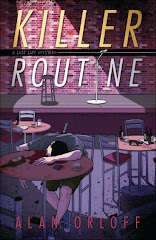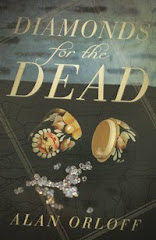^Summer is for reruns, so…
Signs that you should stop fussing with the manuscript you're working on (and move on to the next project):
- Your critique partners no longer answer your emails or return your calls.
- You've memorized the first twenty pages, word for word.
- Your spouse has memorized the first twenty pages word for word, from hearing you recite them in your sleep.
- You've changed the main character's name from Ryan to Bryan to Brian to Brianna to Elvis to Zzvt#%gr to King Machinar III to Fluffy and back to Ryan. Twice.
- You've thought about pitching the whole thing into the trash and starting anew.*
- You're debating whether the Chevy Camaro on page 245 should be white or "eggshell."
- You had a prologue, then incorporated it into the story, then took it out, then put it in as an epilogue, then removed it and now plan to offer it on your website as "bonus" material.
- You've translated the manuscript into Hebrew to see if it works any better going right-to-left. (Strangely, it does.)
- You've thought about pitching the whole thing into the trash and starting anew.**
- You've read the entire manuscript aloud, both frontward and backward, in front of a mirror and then in front of your dog (and the fourth time through, the dog left the room).
Finally, the most telling sign that you should stop revising your manuscript:
Have any to add?
Footnotes
*Of course, this happens at every stage of writing a manuscript.
**Of course, this happens at every stage of writing a manuscript. Multiple times.
***Of course, there's always the second printing!

































